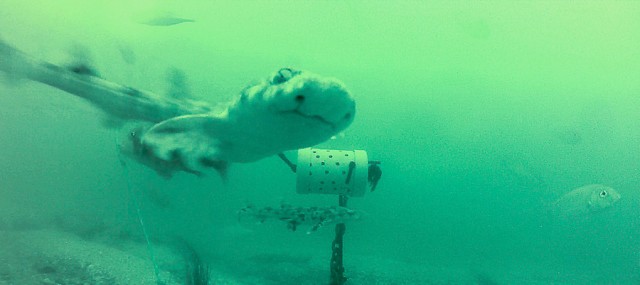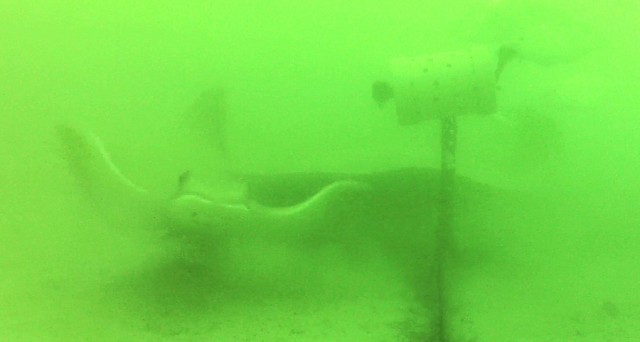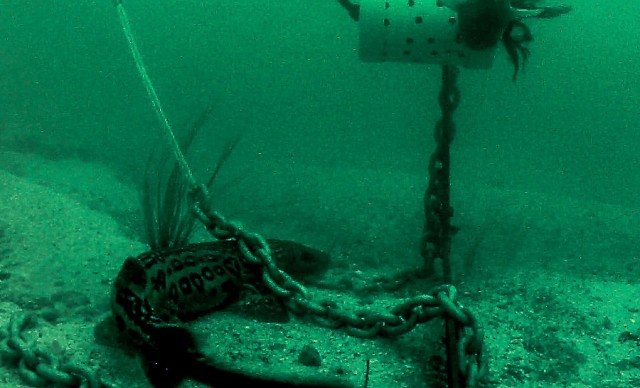Summer in False Bay
Another 95 hours worth of filming across False Bay, and our summer survey is complete.
The data collected during this period will provide a valuable comparison for the data we collected in winter, to give us an indication of whether the abundance and distribution of fish in the bay differs seasonally.
Summer in False Bay is characterised by strong south easterly winds, and the turbid water pushed into the bay by these winds renders visibility rather poor, so finding suitable sea-going days is tough! At least the rain and big swell of winter had subsided …
Summer brings not only changes in swell size and direction, wind speed and direction, but most importantly, ocean temperatures. The temperature loggers on our BRUV rigs recorded sea temperature throughout the camera deployments so that we can use this information to understand how this factor affects fish distribution across the bay. We know that fish are often more mobile (and therefore more visible in front of the cameras) in warmer waters … which might be a factor to watch as seasons change from winter to summer.
The following video clip is an introduction to the species we’ve encountered so far. I look forward to detailing each species in future blog posts, providing names and some interesting information as the analysis of the summer survey unfolds. For now, I leave you to meet the summer inhabitants of False Bay.
Follow the link and use a good pair of headphones: https://vimeo.com/58965154



